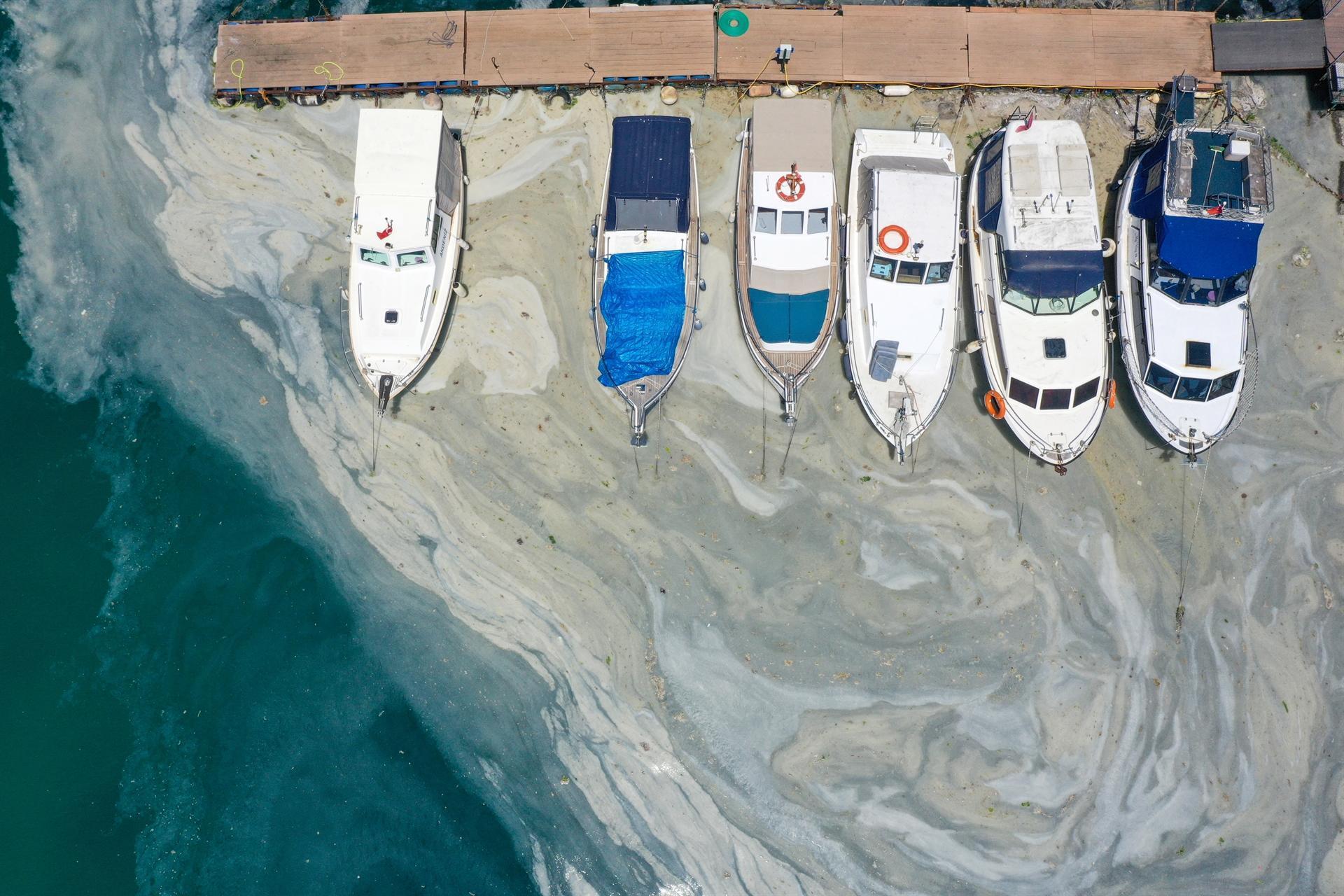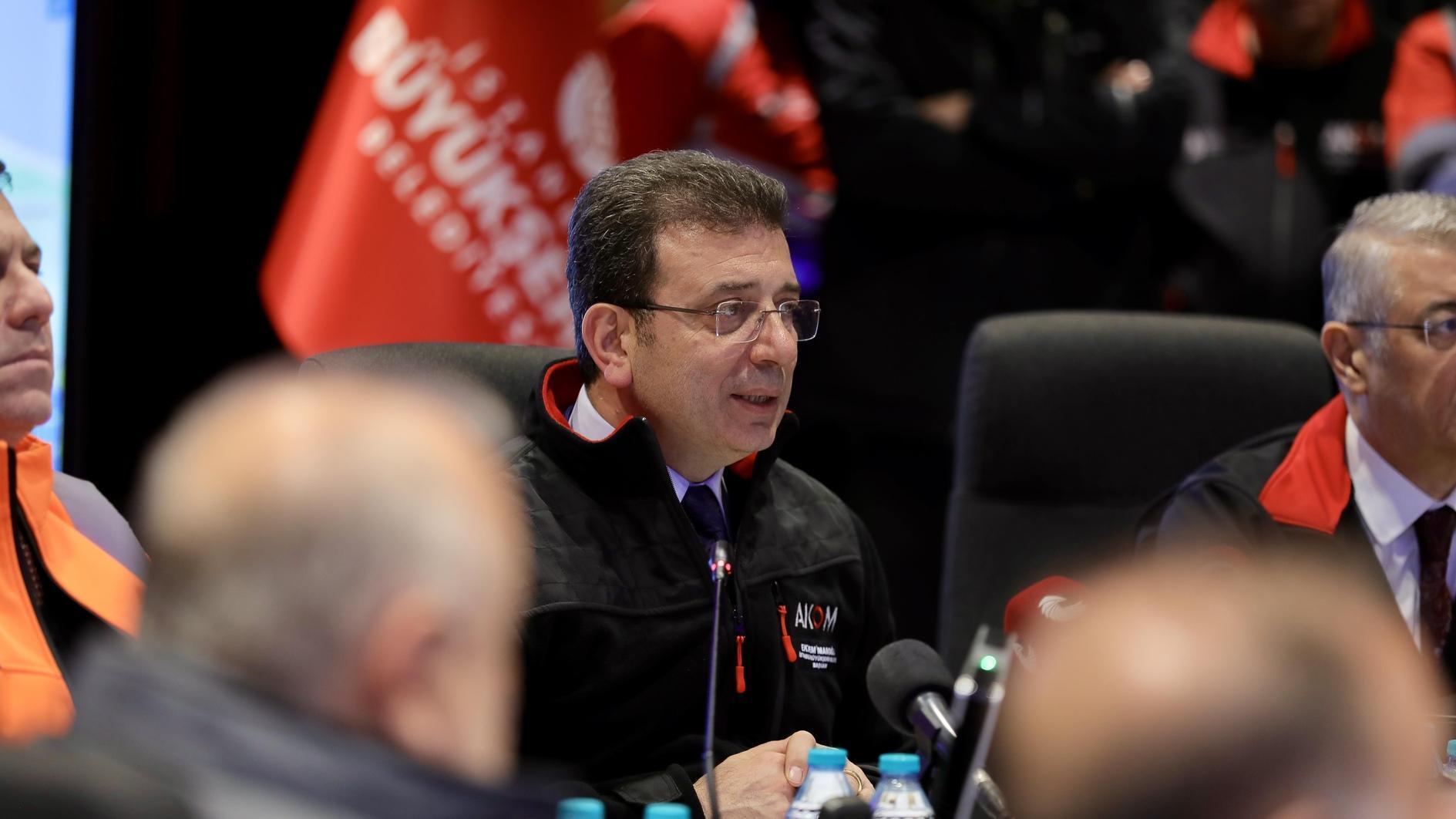Turkey collects nearly 3,300 cubic meters of mucilage from sea
ANKARA

Turkish cleanup teams have collected a total of 3,288 cubic meters (116,114 cubic feet) of mucilage from the Marmara Sea in the last eight days, the country’s environment and urbanization minister said on June 16.
Updating the public about the efforts conducted so far to clear out mucilage, or “sea snot,” Murat Kurum said on Twitter that the cleanup operations were conducted in 193 locations.
Noting that the collected mucilage has been sent for disposal, Kurum said the northwestern province of Yalova, Istanbul and the western province of Balıkesir were among the provinces where most of the mucilage has been cleaned up.
“In 3,219 inspections we did as of June 15, we imposed total administrative fines of 10.49 million Turkish Liras ($1.22 million) on businesses that did not fulfill the necessary conditions,” he said, adding that environmental laboratories were running analyses 24/7 on collected mucilage samples.
Mucilage is an overgrowth of microscopic algae called phytoplankton caused by rising seawater temperatures due to global warming, stagnant water and pollution.
On June 6, Turkish authorities announced a 22-point action plan to clear a surge of mucilage covering parts of the Marmara Sea in the country’s northwest.
Mucilage mostly accumulated in Mudanya, Gemlik Bay, Gebze and its surroundings, the coastal areas of Istanbul’s Anatolian side and around the Princes’ Islands as well as partially covered the shores of the Marmara Sea.

The substance covering the central coast of the northwestern province of Yalova was dispersed by the wind to coastal areas of the Çınarcık and Armutlu districts as well as the town of Esenköy, which are some of the important touristic hubs.
Officials monitoring the Marmara Sea on R/V Alemdar II research ship have detected hydrogen sulfide some 750 meters down the sea level off Çınarcık.
“We took water samples from the area. It smelled like decayed egg. We figured out that it was hydrogen sulfide,” Nuray Çağlar, a professor on board, told daily Milliyet on June 17.
According to the expert, they did not detect the deadly gas in the last experiment made in 2019.
“This discovery shows how big the calamity is,” she added.
Meanwhile, a team of state-run Anadolu Agency dived into the Marmara Sea to monitor the mucilage situation.
The team consisting of Ercan Akpolat, Serco Ekşiyan, Ateş Evirgen and photojournalist Şebnem Coşkun monitored the situation at a depth of 30 meters (98 feet) off the Tavşan Island.
It was observed that the visibility was near zero, and the intensity was many times higher than the dive performed by the same team a month ago.
The team noted that the mucilage, which can be seen vividly on the underwater rock formations, looked like a spider web.
Akpolat said that the mucilage seen on the outside would increase as it rots below.

















